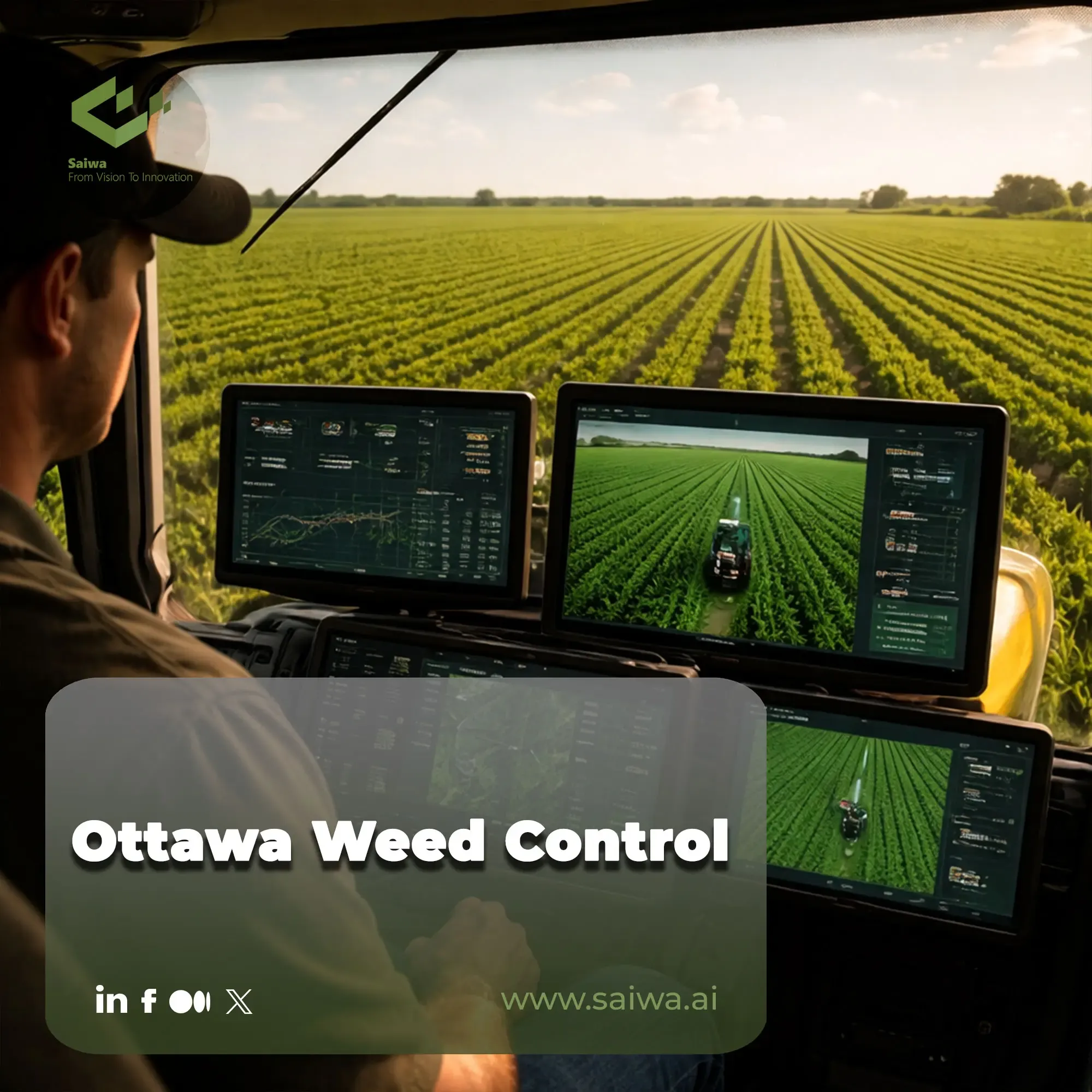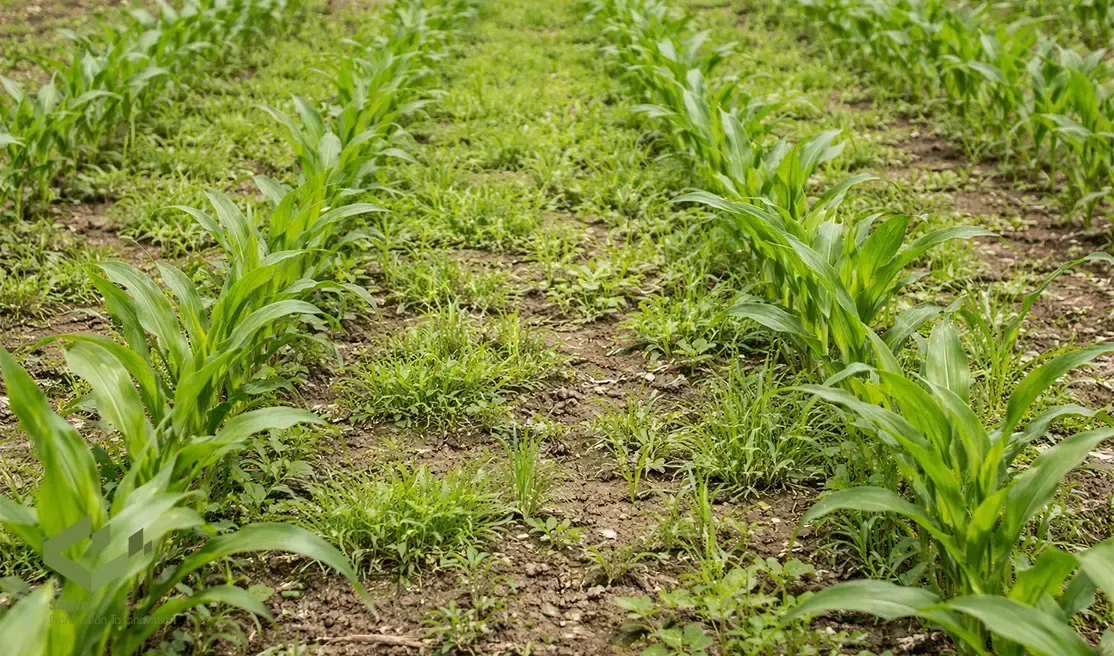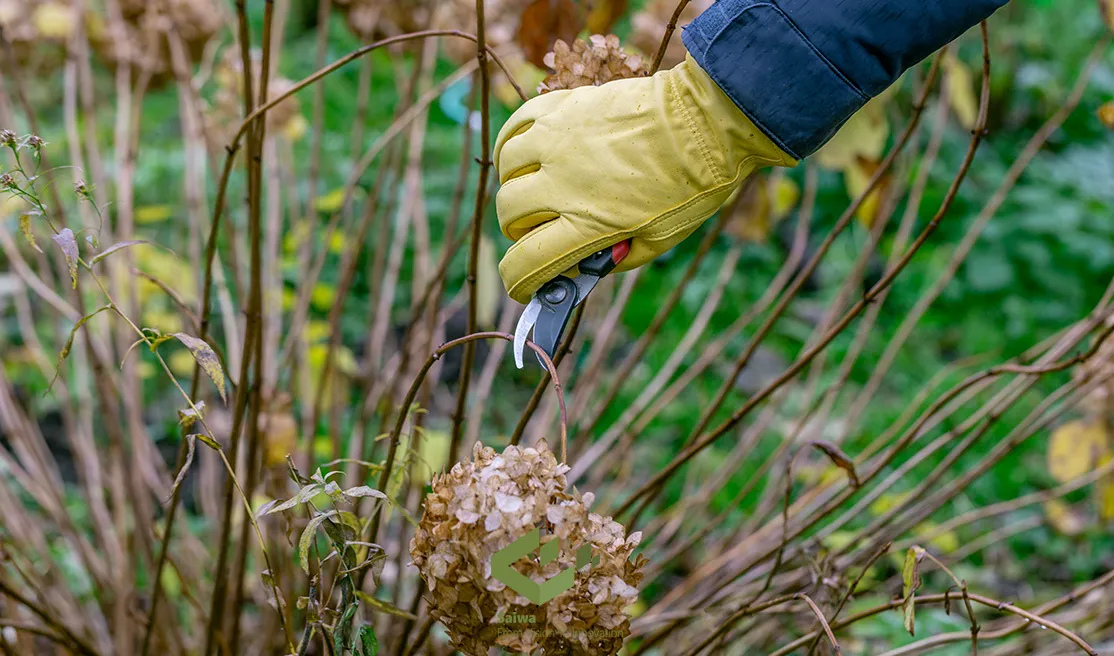Ottawa Weed Control - Targeted AI-Powered Services in Ontario
AI-powered Ottawa Weed Control services using drones and machine learning offer targeted, eco-friendly solutions for farms, parks, and green spaces in Ottawa.
Written by Amirhossein
Reviewed by Boshra

Ottawa is surrounded by fertile agricultural regions that support the cultivation of crops vital to Ontario’s economy. However, the region's growing conditions and seasonal patterns often lead to the spread of invasive weed species. These weeds can significantly impact crop yields and disrupt natural ecosystems. Therefore, effective identification and control of weeds is vital for protecting the productivity of farmland and maintaining the environmental health of the Ottawa area.
Sairone is an AI-powered solution developed by Saiwa that delivers a precision weed control service tailored for farmers, horticultural operations, and land managers in the Ottawa area. Sairone combines drone imagery, computer vision, and machine learning to deliver precise, data-driven weed control recommendations for targeted treatment. This smart approach reduces herbicide use and costs while helping to maintain healthy, sustainable landscapes.
This guide provides an overview of key crops grown in Ottawa, the weeds they face, and practical weed control approaches.
Common Agricultural Crops in Ottawa and Ontario
- Soybeans: Ontario is the leading soybean producer in Canada, with Ottawa farms playing a key role in supporting both local consumption and export markets.
- Grain Corn: Grain corn is an important crop in Ottawa, used widely for livestock feed, ethanol production, and food processing.
- Winter Wheat: Mainly soft red varieties, winter wheat is a staple in crop rotation systems and supports the province’s milling and baking industries.
- Spring Wheat: Grown for various food applications, spring wheat remains a valuable crop despite some fluctuations in overall provincial production.
- Fall Rye: Often planted as a cover crop, fall rye helps prevent soil erosion and enhances organic matter, contributing to sustainable farming practices.
Major Weeds Impacting Ottawa’s Crop Production

Agricultural areas in Ottawa face challenges from several persistent and competitive weed species. Effective management is crucial to protecting crop yields and maintaining sustainable farming practices. Below are some common weed types in Ottawa and Ontario:
Thistle (Cirsium spp.)
Thistles, especially Canada thistle, are widespread and invasive in Ottawa’s fields. Their aggressive growth and deep root systems make them difficult to control, competing heavily with crops for nutrients, water, and light.
Taraxacum (Dandelion)
Dandelions are common across Ontario's farmland, including Ottawa. While less aggressive than other weeds, their presence can still reduce crop vigor by competing for resources and hosting pests and diseases.
Canada Fleabane (Conyza canadensis)
Canada fleabane is a prevalent weed in cultivated fields across Ontario. It exhibits resistance to multiple herbicide groups, including glyphosate. This complicates control efforts and threatens crop productivity. Effective suppression requires integrated weed management strategies.
Common Ragweed (Ambrosia artemisiifolia)
Common ragweed is widespread in Ontario's soybean fields, with high-density infestations potentially reducing yields by up to 50%. Its pollen is a significant allergen, affecting both crop health and public well-being.
Giant Ragweed (Ambrosia trifida)
Giant ragweed is a robust competitor in Ontario's row crops, capable of causing significant yield losses. Glyphosate-resistant populations have been identified, making traditional control methods less effective.
Eco-Friendly Weed Control: A Smarter Approach
In addition to established strategies such as cover cropping and strategic tillage, farmers can enhance sustainability further by using eco-friendly methods to manage weeds. Mulching with organic materials such as compost, wood chips, or straw blocks sunlight, suppressing weed growth while gradually improving soil fertility. Soil solarization involves covering fields with clear plastic to harness solar heat; this method effectively reduces weed seeds and pathogens without the use of chemicals. Heat-based methods, such as flame weeding or carefully applied boiling water, offer precise, chemical-free solutions for smaller plots, pathways, or sensitive areas where minimizing environmental impact is paramount.
Adopting these approaches benefits the environment and long-term crop productivity. Eco-friendly methods protect soil structure, enhance biodiversity by supporting beneficial organisms, and reduce reliance by using fewer chemicals, which makes farmland more resilient to pests and climate variability. Combining these practices with strategies like Integrated Weed Management and herbicide rotation creates a balanced, sustainable approach to weed control. For Ottawa’s agricultural sector, integrating eco-conscious methods ensures that weed management supports immediate crop health and promotes healthy ecosystems and sustainable farming practices for the future.
Common Ottawa Weed Control Strategies
Farmers in Ottawa use a combination of strategies to manage weed populations. This ensures sustainable crop production and minimizes environmental impact.
Integrated Weed Management (IWM): Combines cultural, mechanical, and chemical methods to control weeds. This holistic approach reduces resistance development and minimizes environmental impact while maintaining long-term crop productivity in Ottawa’s diverse farming systems.
Herbicide Rotation: Using herbicides with varying modes of action each season prevents resistance buildup in weed populations. This method is essential for sustainable weed control, especially in corn, soybean, and wheat fields.
Cover Cropping: Planting cover crops like fall rye helps smother weeds, improve soil health, and retain moisture. This eco-friendly strategy supports long-term weed suppression and benefits Ottawa’s cool-season crop cycles.
Tillage Practices: Strategic soil tillage disrupts weed seed banks and minimizes early weed growth. While reducing weed pressure, it must be balanced with erosion control to maintain soil structure and fertility.

Specialized Weed Control for Diverse Landscapes
Effective weed management in Ottawa’s diverse landscapes requires targeted strategies. Advanced drone and AI technologies allow for effective monitoring and control of golf courses, parks, and other important green spaces.
Golf Courses
Maintaining healthy and visually appealing turf on golf courses in Ottawa requires precise weed management. Common turf weeds like dandelions, crabgrass, and clover can quickly degrade playing surfaces if left unchecked.
Advanced weed control services use drone imaging combined with AI and machine learning to monitor golf course turf efficiently. This technology identifies weed hotspots early, enabling targeted treatment that preserves the grass and reduces chemical use, keeping golf courses lush and playable while minimizing environmental impact.
Urban Parks and Recreational Areas
Urban parks and recreational spaces are vital green spaces for communities, but they face challenges from invasive and allergenic weeds, such as wild parsnip and thistles. Effective weed management protects native plants and ensures safe, enjoyable outdoor areas for residents. Our weed control service leverages drone-based aerial imaging and AI-powered analysis to accurately map weed infestations in these public spaces.
How Sairone Delivers Smarter Weed Control Across Ottawa

Sairone is an advanced AI platform developed by Saiwa that brings intelligent weed control solutions to Ottawa’s agricultural and green spaces. Sairone combines drone technology, image analysis, and machine learning for weed detection accurately and map weed infestations across large, complex areas. This level of precision allows farmers, land managers, and urban landscapers to proactively and precisely target weeds.
Instead of relying on widespread herbicide spraying, Sairone pinpoints the exact location and type of weeds present, including resistant species such as Canada fleabane and Thistle. The system then generates customized treatment recommendations, helping to reduce herbicide usage, cut costs, and limit environmental impact. This protects crop yields and supports soil health and long-term sustainability.
Sairone can adapt to various landscapes. It can manage invasive plants in corn and soybean fields. Its AI-powered insights enable smarter planning and faster response times, resulting in more efficient, environmentally responsible weed control. In regions like Ottawa, where protecting agricultural productivity and ecological balance is essential, Sairone offers an innovative, data-driven approach to weed management.
Conclusion
The diverse agricultural landscape of Ottawa faces ongoing challenges from various weed species that affect crop yields and farm sustainability. Effective weed control strategies, combining traditional methods with modern technology, are essential for maintaining healthy crops such as soybeans, corn, and wheat. By adopting targeted approaches and using innovative tools, farmers and land managers in Ottawa can protect their fields, reduce chemical use, and promote long-term environmental balance.
Note: Some visuals on this blog post were generated using AI tools.
Comments
No comments yet!
Table of Contents
No headings were found on this page.
